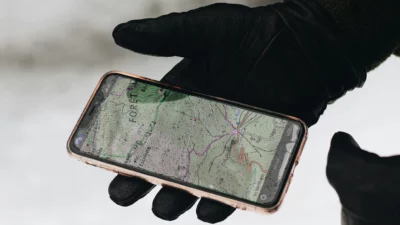Why Creative Writing Skills Matter in the Job Market
Most students think creative writing is just for authors and poets, but that couldn’t be further from the truth. The ability to write well is a skill that sneaks into almost every job out there. Whether you want to work in marketing, tech, business, or even science, knowing how to craft compelling messages will make you stand out.
Employers love people who can communicate ideas clearly. Imagine applying for a job where everyone submits a boring, robotic resume and cover letter – except you. Your words grab attention, tell a story, and make the hiring manager want to meet you. That’s the power of creative writing. It helps you sound human, which is something AI-generated applications lack.
Think about all those times you’ve had to write something important – a scholarship essay, a college application, or even an email requesting an extension on a deadline. The better you write, the better the response. That’s why many students turn to professional paper writers to refine their work and get expert help. If you’ve ever thought about needing support to craft the perfect words, services that connect you with skilled paper writers can be a valuable resource for strengthening your writing and achieving your academic goals.
Writing a Resume That Actually Stands Out
A resume isn’t just a list of jobs and skills – it’s a story about you. Too many people write dry, generic resumes that sound like they were copied from a template. But a well-written resume does more than list experience; it makes an impression.
- Show, Don’t Tell: Instead of saying, “Great problem solver,” write about a time you solved a tricky issue at work.
- Use Engaging Language: Simple but powerful words make a difference. Avoid overused phrases like “detail-oriented” and “hardworking.”
- Keep It Interesting: Just like in creative writing, the first sentence needs to hook the reader. Start with a strong statement about what makes you unique.
Cover Letters That Get You Hired
Cover letters are where creative writing skills really shine. Most people write stiff, formal letters that put hiring managers to sleep. A great cover letter tells a story. It explains why you’re excited about the job and how your experiences make you the perfect fit.
- Start with a Hook: Instead of saying, “I am writing to apply for this position,” open with something personal or engaging.
- Use a Conversational Tone: Your cover letter shouldn’t sound like a legal document. It should feel like a real person wrote it.
- Make It Memorable: Use vivid language and examples. Show how your past work connects to the job you want.
Communicating Effectively in Job Interviews
Once you land an interview, strong creative writing skills will help you communicate ideas in a way that sticks. Employers don’t just want someone who can do the work – they want someone who can explain their thoughts clearly.
- Tell a Story: When they ask about your experience, don’t just list tasks. Share a brief story about a challenge you faced and how you solved it.
- Use Metaphors and Examples: If you need to explain a complicated idea, a simple comparison can make it clearer.
- Be Concise but Impactful: Just like writing, good communication is about making every word count.
Writing Emails That Get Responses
Most people underestimate the power of a well-written email. Whether you’re reaching out for a job, networking, or following up after an interview, how you phrase things can make or break your chances.
- Subject Lines Matter: Think of them as headlines – make them catchy but professional.
- Keep It Personal: Don’t copy and paste a generic message. A little personality goes a long way.
- End with a Clear Call to Action: Always let the recipient know what you want them to do next.
Using Storytelling in Any Career
Even in jobs that aren’t writing-focused, storytelling is a valuable skill. Engineers explain complex projects, marketers create engaging campaigns, and even doctors need to communicate with patients in an understandable way. Being able to craft a clear, engaging story can help in any field.
- Presentations and Reports: A dull PowerPoint puts people to sleep. A presentation with a compelling narrative keeps them engaged.
- Explaining Ideas: Whether you’re pitching an idea or training a new employee, storytelling makes concepts easier to grasp.
- Building a Personal Brand: If you ever want to start a business or freelance, knowing how to tell your story online will help attract opportunities.
Creative Writing as a Secret Weapon for Networking
Networking isn’t just about shaking hands and collecting business cards. Writing plays a huge role in making connections that matter. Whether it’s sending a follow-up email after meeting someone, crafting a LinkedIn post, or even writing a tweet that gets noticed, your words help shape how people see you.
- Craft a Strong LinkedIn Bio: Your bio should be more than just a job title. Make it a mini-story about what you do and why it matters.
- Write Posts That People Want to Read: Engaging, well-written posts get more attention and start more conversations.
- Send Thoughtful Messages: A personalized message is much more likely to get a response than a generic one.
Final Thoughts
Creative writing isn’t just for authors – it’s a skill that helps in almost every career. Whether you’re writing a resume, an email, a report, or even a tweet, knowing how to craft a compelling message will set you apart.
Employers value strong communicators, and creative writing helps you think, explain, and connect effectively. If you want to get ahead in your career, sharpen your writing skills now. And before you hit send, use a free online plagiarism checker for students to ensure originality and professionalism. Your future job opportunities will thank you!

Lexy Summer is a talented writer with a deep passion for the art of language and storytelling. With a background in editing and content creation, Lexy has honed her skills in crafting clear, engaging, and grammatically flawless writing.



